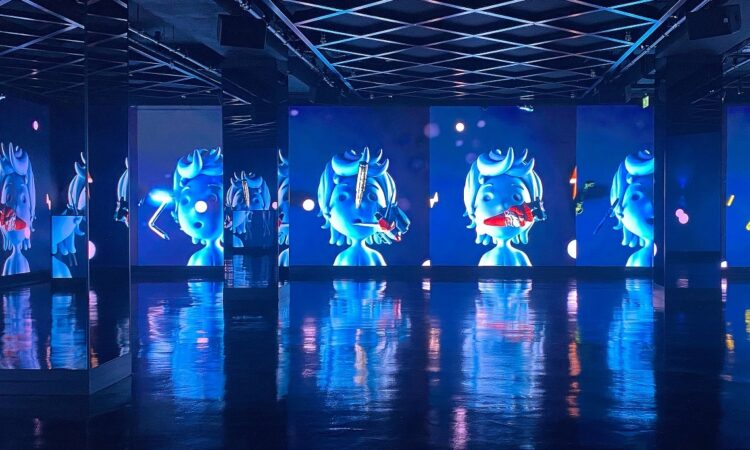
It’s called “Like tears in rain”, NFT’s new exhibition of Crypto Arte by Giovanni Motta, which will be on show at W1 Curates in London from 8 to 31 May.
A truly immersive adventure that crosses the boundaries between the virtual and the tangible.
Here is the description.
Crypto Arte and NFT: What the exhibition “Like tears in rain” by Giovanni Motta is about
From 8 to 31 May, W1 Curates in London will present Giovanni Motta‘s new exhibition “Like tears in rain”, a truly immersive digital cryptoart adventure.
Inspired by the idiomatic phrase from the monologue of the replicant Roy Batty in the iconic film Blade Runner, the work alludes to the ephemeral nature of existence and the importance of preserving the most significant moments of our lives.
Indeed, the Italian digital artist’s new immersive experience offers a profound meditation on the nature of human existence and the passage of time.
It considers the metaphor of life and death as a passage into another dimension. In addition, the work invites viewers to consider the ultimate impermanence of all things and to reflect on the mysteries of human mortality.
In this immersive experience, Motta’s art transcends the boundaries between the virtual and the tangible, involving viewers in an exploration of their own emotional world and authenticity.
Moreover, philosophy, art and technology merge into a homogeneous and stimulating discourse that invites meditation and self-analysis.
Crypto Art and NFT: Motta’s immersive experience at W1 Curates in London
Motta is best known in Crypto Art thanks to Jonny Boy, a symbolic character who embodies the inner child and represents the purity and authenticity hidden within each of us.
This neo-pop-surrealist artist draws heavily from the world of Japanese anime and manga, harmoniously blending Eastern and Western elements in a fascinating dialogue between different traditions.
And in the new exhibition, “Like in the rain”, Motta also aims to evoke childhood memories and the playful innocence of youth, a way of reminding viewers of the importance of cherishing their experiences and embracing the impermanence of life as a natural and necessary part of the human journey.
The choice of London’s W1 Curators is no accident. In fact, the immersive experience is a three-part video lasting a total of six minutes, broadcast on a large LED screen thirty metres long and three metres high in a 400 square metre space.
This space is located in W1 Curates, a digital incubator in a historic building in the heart of London’s Oxford Circus. In addition, the building has an exterior façade with 36 LED WALL windows, each measuring 2.5 metres by 4 metres, where 36 project-related videos will be broadcast daily for three weeks.
Giovanni Motta: the Italian digital artist of Neo-Pop Surrealism
Giovanni Motta’s art establishes a profound and philosophical dialogue between past and present, East and West, and between the individual and the collective.
In general, Motta wants to lead us to rediscover our inner child, encouraging us to immerse ourselves in a nostalgic and transformative journey.
In this ‘Like in the rain’ journey, universal themes such as childhood, memory and the search for the self are addressed, while the Italian artist’s neo-pop-surrealist style gives his works a unique and captivating character, capable of stimulating the imagination and awakening latent memories and emotions.
Motta is the quintessential crypto-artist, explorer of the child hidden in the soul of the adult.
His works, which represent his personal journey through time and experiences, have been exhibited in various galleries and exhibitions in Italy, Europe and the rest of the world, with great appreciation and success.
Gratitude to his crypto community
In February, as a sign of gratitude to his crypto community, Motta wanted to launch his NFT project for free, with free mint.
The artist’s community was able to mint an NFT for free on Manifold, with a maximum of 3 NFTs per wallet.
The work in question was Wonder Machine, a still from the main work, the Wonder Angel video.
In Wonder Machine, the viewer was presented with an artist’s vision of a future in which technology has advanced to the point where children are being created on an assembly line.
These children come to life thanks to the work of a giant lead machine that uses a powerful laser scanner. This laser scans each child, adjusting and calibrating their systems to perfection.
The expressions of the children in Wonder Machine would represent a vision of the future in which technology and life intertwine, giving rise to a new generation of beings that blur the line between machine and human.






